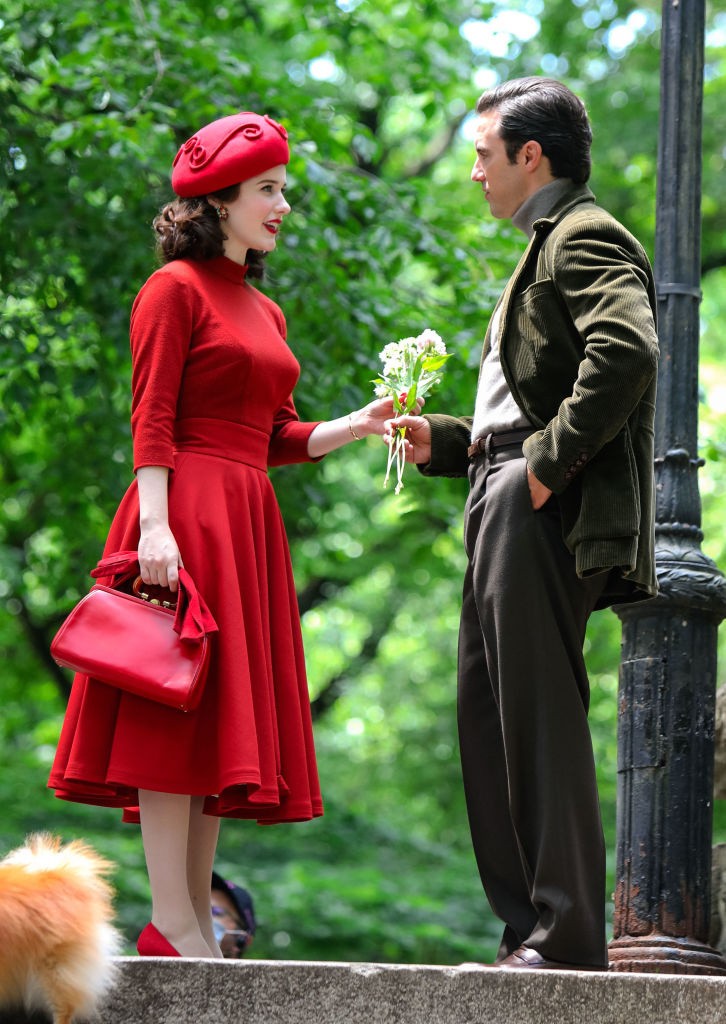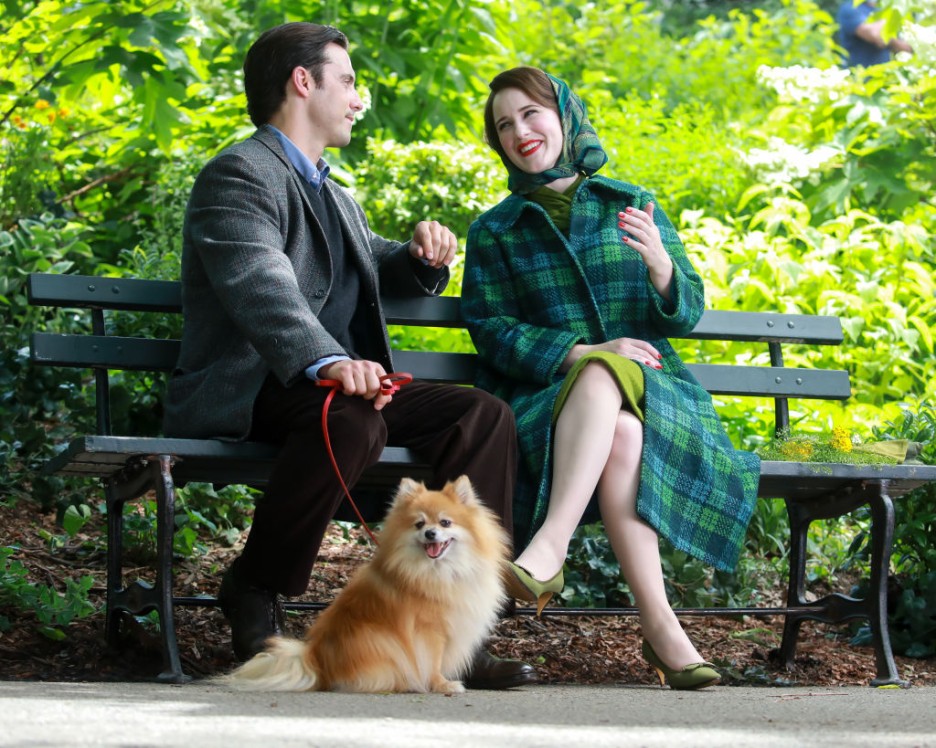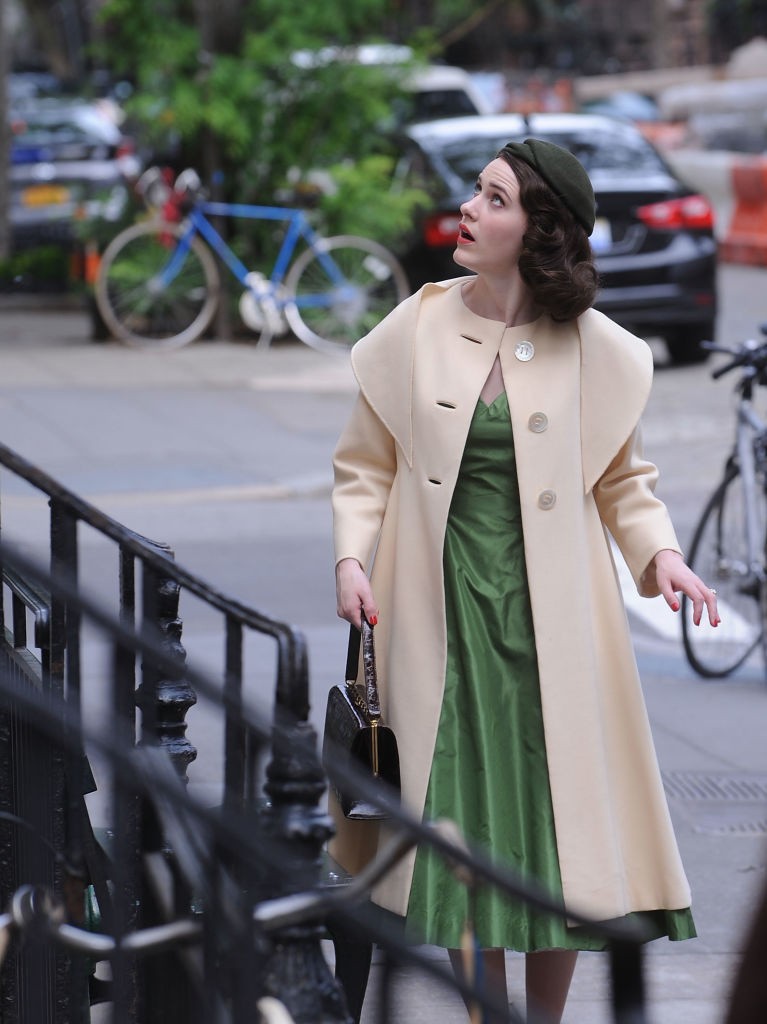The Mrs. Maisel Generation: The Real Life Impact of 'The Marvelous Mrs. Maisel' on Women in Comedy
The highly anticipated fourth season of the outstanding Amazon Prime series The Marvelous Mrs. Maisel, starring Rachel Brosnahan, is almost here! This series, set in New York City in the 1960s, follows the journey of one Miram Maisel as she embarks on a career in stand-up comedy.
Amazon Prime recently released the fourth teaser trailer for this incredible show. (If you want to see all four of them, scroll through this article!)
Women have made increasingly impactful strides in the field of stand-up comedy, especially since the time when this show was set. The number of recognizable female comedians has increased, seeing more than one woman booked on a show has become minutely more frequent, and more women are booking shows in general.
"Research" (yes, I am using sarcasm quotation marks around "research") as recent as 2019 has come out stating that 63% of men are funnier than women. This harmful pseudoscience raises to the forefront a "which-came-first-the-rubber-chicken-or-the-egg" style question about the unfair stereotype: Are women actually less funny than men, or have women been so dissuaded from being funny throughout time that fewer women overall are encouraged to explore it?
A much more scientific 2018 study done by stand-up comedian Meridth Kachel quantifiably proved the disparity in bookings for female comedians compared to their male counterparts. Utilizing irrefutable data, the study proves that there isn't a lack of funny women; just a problematic inequality when it comes to the number of bookings women receive versus their male counterparts.
It is true that men significantly outnumber women in comedy, 85.2% to 11.8%, but Kachel's data proves that doesn't necessarily have to do with actual humor. Of the top 50 comedians, according to her findings, 43% are women. Therefore, the argument that there are simply fewer funny women to choose from does not work once you get to the upper echelon of the comedy scene.
"There's a 10% difference in the number of men and women being booked," Kachel writes. "It renders this argument useless."
Arguments that women are not as funny as men are as factually inaccurate as they are harmful for women who are curious about pursuing professional comedy.

In an interview with Radio 1 Newsbeat, after this "research" project had come out, the comedian and member of the comedy duo "Siblings" commented that,
"You want the worst and the best comedians to try because you never know. This study will cripple bravery."
From a young age, humor is encouraged in boys where it is dissuaded in girls. In 2017, Caroline Nugent, then a 13-year-old, spoke to The Washington Post, explaining,
"I feel like when boys make jokes that are edgy, they get more praise for it, but since women are stereotypically dainty and quiet, especially in the past, they aren't as encouraged to be funny...when one of the girls tries to make a joke, the boys are like, 'Why are you talking?'"
This dissuasion from being the "funny one" in the room leads to less women as they get older to even consider comedy as an option. Most have not seen themselves represented on the stand-up stage and, so stepping up there themselves often feels like something entirely outside of the realm of possibility.
That is, until The Marvelous Mrs. Maisel hit Amazon Prime.
I am in NO WAY SUGGESTING that The Marvelous Mrs. Maisel is the first representation of women in comedy. AT ALL. The field was already filled with absolute icons before it came along: Joan Rivers, Elaine Boosler, Wanda Sykes, Ellen DeGeneres, Iliza Shlesinger, Jessica Kirson, Ali Wong, and more were already iconically creating a space for women in the field. They have run circles around stand-up land, and many of them have done it while pregnant.
However, The Marvelous Mrs. Maisel served as an avenue through which women and girls, whose humor had never previously been encouraged, who had never listened to stand-up comedy to begin with, who had shoved the arena into the back recesses of their mind, found themselves confronted with a world they had not previously been exposed to. Through the show audiences saw a woman, a stereotypical feminine ideal, pursuing stand-up comedy in the 1960s: a time when women (please excuse the poetic-license hyperbole that I will be using for dramatic effect) LITERALLY COULD NOT DO ANYTHING. (Sorry for yelling, but you get the point.) It set off a bell in the minds of many throughout the world: Oh! I didn't even realize that was an option for me!

While the actual numbers and research have not been done on the specific correlation between the show's beginning and the number of women newly pursuing stand-up comedy, the associated surge has not gone unnoticed by those in the field. I am a stand-up comedian myself. I remember being at an open mic when an older male comic that I have not seen since (clearly a major force in the industry) lamented about the "Mrs. Maisel Generation." He was commenting on the "un-funny" women that watched the show and started doing stand-up comedy even though they 'aren't actually funny.'
Do I think that Midge's stand-up would actually hold up in a real comedy club? No. (To that point, New York comedian Brett Singer has an excellent joke!) However, is it fair to categorize the women inspired by this show as un-funny wannabes? Absolutely not.
This remark, one of many similar jokes and barbs aimed at women in comedy, pointed to the reason the show is so powerful in today's world. It encouraged women to get into the room, to try it out, and to risk failure.
Men are allowed to fail. With men, there is an expectation, nay, a constant repetition of the ideology that you are going to bomb a million times, but, eventually you will develop a mastery of the skill. There is a baseline assumption that all men are inherently funny; they just have to craft it. They can learn to be funny.
Women, conversely, are expected to come in being great, or at least show an obvious level of potential. It is an outward expression of the belief that it is weird for a woman to be funny (...or better than a man at anything, really.) Therefore, they must come in with enough baseline talent to warrant a level of respect above the current 'Oh good for her. She's trying something. I wonder when she'll...stop...'

The Marvelous Mrs. Maisel has been revolutionary in proving to women that they are allowed to try. They are allowed to fail. They have the capacity to succeed in a field that they have never been encouraged towards. The show pointed women around the world to watch the greats (listed above) and more.
The arena is changing, and this show is a big part of that change. Women are just as funny as men, and we can do it with far fewer d**k jokes.
© 2026 Enstarz.com All rights reserved. Do not reproduce without permission.






